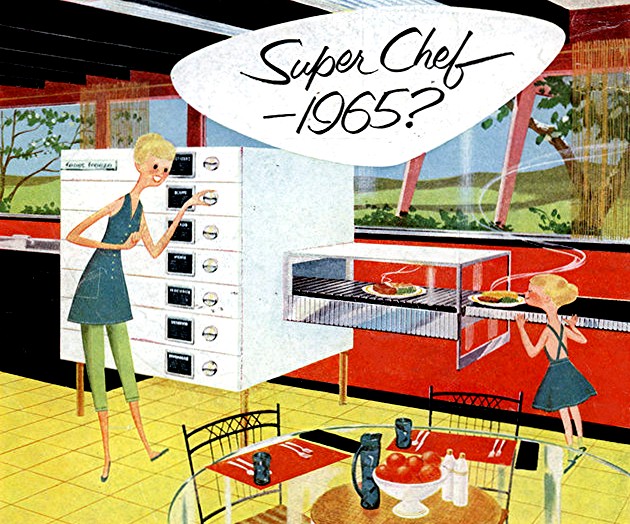Tales of Future Past v2
Main menu
- Home Page
-
Life on Other Worlds
- Life on Other Worlds
- Life on the Planets
- Life on the Moons
- Tales of the Stars
-
Future Living
- Future Living
- Life in 2000 AD
- Leisure
- Shopping
- Drive-In Market
- Cosmetics
- Laundry
- Strikerette
- School: 1999
- Optionics
- Life in 2055
- Future Movies
- Sensorama
- Scopitone
- Radio Pirates
- Weather Control
- Automatic Lumberjack
- Cold Light
- Eternal Youth
- Cryonics
- Suspended Animation
- Space Funeral
- Space Holidays
- Trapped by Television
- Robot Dogs
- Churchill: 1982
- Future House
- Future Kitchen
- Future Food
- Future Work
-
Future City
- Future City
- Skyscraper World
- Tomorrow's Skyline
- Urban Utopias
- World's Fair City
-
Future Transport
- Future Transport
- Rollerball
- Hydrofoil
- Tourism
- Future Liner
- Monorail
- Garden Rail
- Propeller Rail
- Water Rail
- Rocket Trains
- Radio Trains
- Rocket Mail
- Jet Boat
- Desert Liner
- Huge Truck
- Channel Tunnel
- Iron Whale
- Sea Slug
- Sea Slug 2
- Hovercraft
- Ice Field
- Rocket Port
- Vacuum Trains
- Transatlantic Tunnel
- Future Lift
- Travel: 1928
- Concrete Liner
- Teleportation
- Future Car
- Death Rays
Future Kitchen

Why does the kitchen loom so large in Future Past? Why not equal space for the drawing room of the future, or the alcove of tomorrow, or the crawl space of the next century? The answer is that the development of kitchen appliances did for the homemaker what automation did for the factory worker–and in some ways the changes were even more revolutionary. These were changes that liberated women from a task that had been theirs since Og dragged the first mastodon back to the cave.
These changes are so great that today that we often don't appreciate just what a tremendous boon things like electric cookers, toasters, dishwashers and mixers were for families, and women in particular, in the last century. In fact, if one makes a study of how people of today look back on predictions of the kitchen of the future, one is struck by how condescending, even sneering, many commentators are about the whole thing. It generally can be summed up as something like, "Okay, they got the microwave and the frozen food right, but these silly people missed out on feminism." Or the welfare state, or gay rights, or the EU directive on bananas, or the Spice Girls reunion.
It's easy to laugh at past predictions, but it is also a bit prejudiced if we damn them for being insufficiently feminist or whatever and arrogant to claim that they fall short if they fail to foresee "us." There is something absurd in condemning the designers of these kitchens for not preemptively embracing the prejudices of a load of left-
Bear in mind that these amenities were aimed at middle and working class women who took several back-
In this context, these labour saving devices were a revolution. It meant that women of modest means could now enjoy freedoms that hitherto could only be enjoyed by the upper classes. It meant leisure and choices of occupation. It meant not a world where women merely should be equal, but one where they could be equal.
Not a bad job for a crock pot